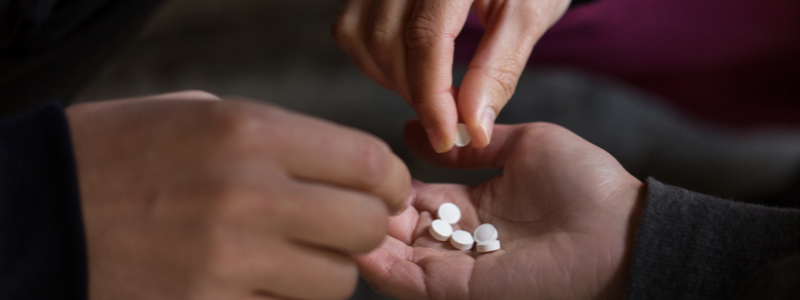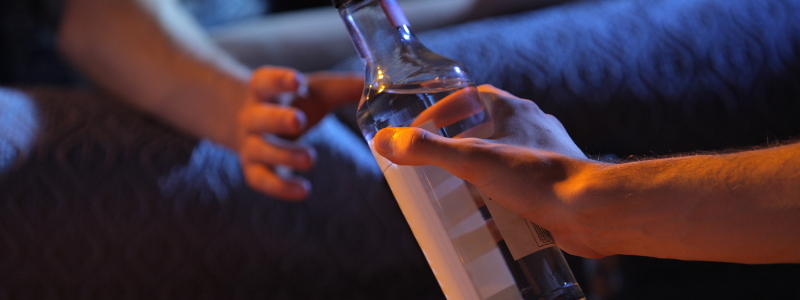Drug addiction is a major concern for many American families. The current opioid epidemic is sweeping the nation, costing thousands of lives and increasing costs of health care for treatment of drug abuse and overdose. While these trends are a major concern, nothing is more concerning than drug addiction signs in children. Just remember, when you’re raising a child, one of the more important things to be concerned about is the answer to the question: “Is my child an addict?” According to ASAM (American Society of Addiction Medicine), substance abuse has increased every year and children are still exposed and vulnerable to the detrimental health effects of alcohol and drugs.
While the statistics show that the largest increase in heroin use is among the older generation (40+ age group), it still shows a significant increase in younger people, enough of an increase to cause any parent concern. That’s why parents need to be aware of substance addiction signs in children. If you’ve wondered, is my child an addict, then you can imagine the fear and overwhelming nature of the disease that has taken hold of the lives of even younger adolescent groups.
Drug use by a child is one of a parent’s worst fears. But when alcohol or other drug use becomes an addiction, it can ruin a child’s life. Addiction in a child can also destroy the fabric of trust so essential in a family. Early detection and intervention are essential as the development of children is important and substance abuse can hinder it. Additionally, children are far more exposed to mental health issues and long-term addiction later in life.
Is Your Child Using Alcohol or Drugs?
If you’re thinking you have nothing to worry about because the statistics show that the older age group is the one harming themselves — think again. Below is a chart from Business Insider showing overdose deaths by age groups.
Wondering the question “Is my child an addict?” is something almost every parent asks themselves once children hit the teenage years. For a loving and nurturing parent, hat’s being a responsible role model and caretaker. Because of the prevalence of drug use in today’s society, every parent should be asking “Is my child an addict?” They should routinely do a search and type in “drug addiction signs in children.” Getting back to the chart, it shows that youngsters have one of the lowest rates of increased deaths, but that’s still not good. It amounts to tens of thousands of children — young lives that will never be developed.
Find drug prevention programs for youth here.
Seeing Drug Addiction Signs In Your Child
There might be nothing worse in life — with the exception of a loved one’s death — than a child battling with alcohol or drug abuse. The effect of addiction can impede a child’s development and cause numerous health concerns. Even if not immediately evident, the younger a child uses or abuses substances, the more they are exposed to the likelihood of succumbing to addiction later in life. In fact, according to Standford Children’s Health, a child who begins experimenting with alcohol and other drugs is almost three times as likely to battle with Substance Use Disorder as an adult.
Many parents and/or spouses want to know the telltale signs of drug use, or at least they say they do. When I was raising children, the one question that nagged at me more than any was — “Is my child on drugs?” How about you? Is my child an addict? You need to be sure.
Drug Addiction Signs in Children
What are some signs of drug use in children? You’d think you should be able to tell if your child is doing something, but determining if your child is on drugs is never a simple undertaking. You may think you have a good relationship with your child but substance abuse can transform a parent and child’s relationship for the worse. A child may be reluctant to admit to potential issues caused by alcohol and drugs either because of shame or for fear of getting in trouble.
It’s important to maintain an open communication channel and understand possible reasons that your child could be using substances. If they are experiencing something traumatic, therapy may help to address underlying causes of substance abuse such as anxiety, depression, or other mental illnesses. However, the first step to take is looking out for signs that substance abuse may be prevalent. These are some things to look for.
The first signs to look for when you seek the drug addiction signs in children are the physical signs. They may be the easiest to spot.
1. Physical clues (look for more than one and persistence over time)
- Change in eating habits and unexplained weight loss or gain
- Inability to sleep or wake up at usual times
- Red or watery eyes, pupils larger or smaller than a normal, blank stare, sniffing all the time
- Excessive sweating, tremors, or shakes
- Cold, sweaty palms or shaking hands; nausea or vomiting
- Extreme hyperactivity or excessive talkativeness
2. Sudden and sustained emotional changes
- Loss of interest in the family
- Signs of paranoia, such as being overly secretive or hiding behind locked doors
- General lack of motivation, energy, self-esteem
- Chronic dishonesty
- Moodiness, irritability, nervousness
These changes can become so severe that parents do not “recognize” their child and experience feelings of loss.
3. A pattern of changes in school attendance and grades
Addiction shows up via a change in a child’s behavior in school, but most schools do not have the resources to identify the problem. Parents must look for signs, such as tardiness and attendance problems or a drop in grades. Talk to the school directly. Don’t rely on automated phone messages, which your child can delete before you get home from work.
4. Several instances of unaccountable money or unexplained loss of money
Drug users often become drug dealers who come home with unexplained sources of income. Or, the opposite happens, and children start stealing from siblings or parents. Notice whether any game stations, jewelry, CDs, or tablets are missing. Watch for lies: “I’m just holding this money for a friend,” or “I lost the money you gave me.” Watch for unexplained debit card problems.
5. Dramatic changes in friendships
When a child starts abusing alcohol or drugs, one of two things usually happens with friends. The friend group either changes radically, with old friends dropping away and new friends entering the scene, or children suddenly have multiple sets of friends. In either case, children might become ultra-secretive about their mobile phones.
6. Uncharacteristic changes in mood or personality
In many cases, youth addiction is accompanied by mental health issues such as depression. It can be difficult to know which issue came first because many of the signs and symptoms of chemical use are also signs and symptoms of mental health issues. For example, depression or anxiety can be caused by drug abuse or be the reason a child starts using in the first place. A licensed mental health practitioner can help determine whether mental health issues are a concern and if so, can make recommendations for appropriate treatment.
7. Drugs missing from the medicine cabinet
Many young people with drug abuse issues will search the medicine cabinet at home, while at relatives, with friends, or even while babysitting. Young people are savvy about what medications will get them high, such as ADHD medication and pain pills.
8. Deterioration in appearance
Addicted youths begin to pay less attention to how they look and to their hygiene. As a parent, you will notice their clothes aren’t as clean as usual. Lack of sleep may make them appear especially drawn and tired. Fewer baths or showers may increase body odor. They have shifted their attention from taking care of their physical selves to focusing on getting access to drugs. Parents will find themselves commenting on this more often.
Look for any number of these warning signs. If you have concerns, talk to a professional who can help you determine whether your child’s behavior warrants a drug and alcohol abuse assessment. Overall, the stages of addiction are evident and with frequent involvement in your child’s life, you can spot signs sooner and find assistance for recovery before substance abuse gets out of hand. Parents are recommended to stay active and participate in their child’s day-to-day activities to more easily identify changes in their child’s mood or behaviors.
AspenRidge Virtual Care – Online Addiction Recovery
Is my child an addict? Asking this question is a difficult subject to approach. Substance abuse in children can be a sensitive subject both for the parent as well as the child. Oftentimes, substance abuse may just start and parents are looking for extra support to help address the issues. Online recovery options are a great alternative to traditional in-person rehabilitation. Online recovery has proven to be just as effective as other methods of treatment. Additionally, children can feel more secure about finding support without the fear of stigma or shame that is often associated with drug use. Additionally, virtual drug recovery provides flexible treatment options that are tailored to your child’s needs.
For more information on our online programs, contact us directly at 720-650-8055. We are available to answer questions 24/7 about our options for treatment that address alcohol and other drugs.







